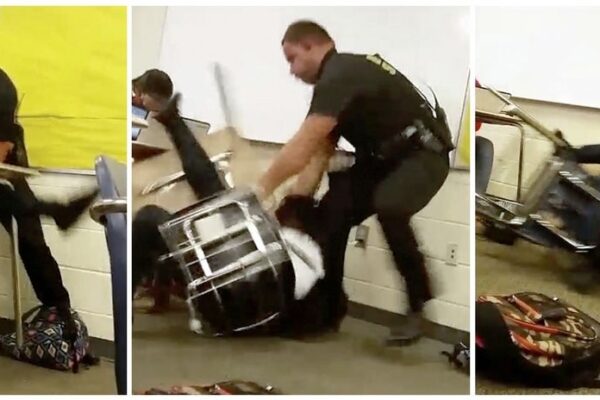South Carolina made national news again recently when a School Resource Officer (SRO) was caught on video using violence to compel a student to comply with his orders. The SRO was terminated, but the problem runs much deeper than this individual deputy, and the solution must go further as well.
School discipline is often framed as an either-or choice between putting up with disruptive classroom behavior or arresting, tackling, or tasing kids. Are these the only alternatives? We don’t think so.
Other states are proof that positive discipline and school safety can go hand in hand.
In 2004, under the leadership of Judge Steven Teske, Clayton County, Ga., adopted an agreement to ensure that “misdemeanor delinquent acts” — things like fighting, disrupting the public school, disorderly conduct, etc. — do not result in immediate court referral. Instead of arrest, young people receive warnings first, then are referred to mediation or school conflict workshops.
The protocol has been heralded as a national model. After it was adopted, school referrals to juvenile court dropped more than 70 percent, and serious weapons incidents on campus dropped nearly 80 percent. Graduation rates have also risen significantly.
Just last year, Philadelphia implemented a groundbreaking delinquency diversion program that provides an alternative to arrest for students accused of minor or first-time offenses, especially for those considered unlikely to re-offend.
Within the first year of the program, the number of arrests dropped by 54 percent, and there were 1,051 fewer behavioral incidents in the Philadelphia school district.
In addition, the Philadelphia school district’s police department now refuses to deploy officers for low-level conflicts and classroom management matters, such as not following classroom rules, the inappropriate use of electronic devices, and dress code violations.
South Carolina communities invest a lot of money in stationing officers in schools, often without enough training or guidance about their mission. We don’t invest as much in teaching positive discipline, providing counseling or mediation, or implementing restorative justice practices and other proven remedies. That is a costly choice.
The ACLU of South Carolina has joined with other community groups around the state to call on our schools and elected leaders to prioritize counselors and other supports for students over police and arrests.
We have called on them to end arrests for minor misbehavior and fix South Carolina’s outdated and unfair “disturbing schools” law, which can lead to children arrested for being “obnoxious.”
Minor offenses should be handled by educators, who must have adequate classroom management training. All our schools should be equipped with guidance counselors who can help resolve conflicts, and we should reinvest our resources into positive community alternatives to better address discipline and prioritize students’ educational needs.
All police who work in schools should also be trained in youth development, non-violent conflict resolution, implicit bias, and interacting with students with disabilities.
Most of this can be achieved at the school district level through written policies that distinguish between school discipline and serious crimes, and through a commitment to shift resources to supporting students rather than arresting them. And the legislature can and must reform “disturbing schools.”
All of this is doable. Other states have taken on school-to-prison pipeline reforms with remarkable results. Our school districts and our Legislature have the tools to reform school discipline statewide, if the political will is sufficient. We owe it to our students to make better decisions about discipline, not false choices.


